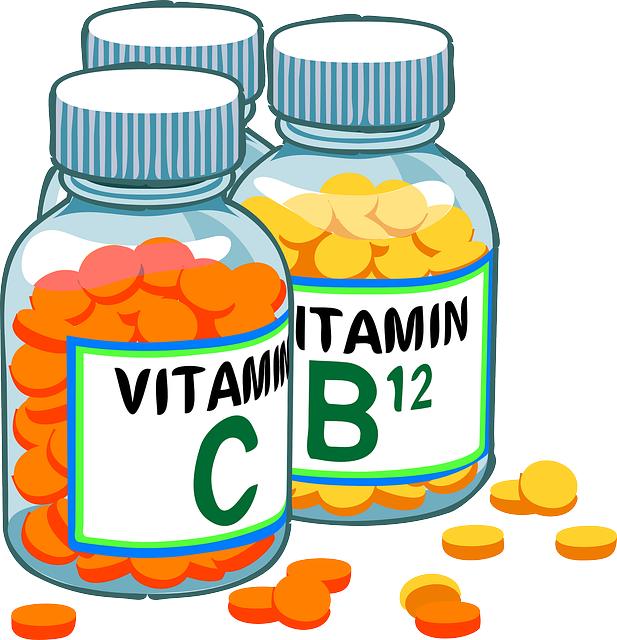In the world of athletics, where peak performance meets relentless dedication, the pursuit of optimal health often extends beyond training regimens and nutritional plans. For many athletes, joint health becomes a crucial yet often overlooked aspect of their wellness strategy. The intricate balance between rigorous activity and physical resilience can wear down even the most robust joints, leading to discomfort and potential setbacks. Enter joint health supplements—a burgeoning category designed to support recovery and enhance performance. from enhancing versatility to reducing inflammation, these supplements promise to be the silent champions in an athlete’s toolkit. In this article, we delve into the science behind joint health supplements, exploring their potential benefits, ingredients to look for, and how they can play a pivotal role in helping athletes stay on their game and rebound stronger than ever. Whether you’re a seasoned professional or an enthusiastic amateur, understanding these supplements may just offer the edge you need for your sporting journey.
Understanding Joint Health: The Foundation for Athletic Performance
Joint health is a crucial aspect of athletic performance that often goes overlooked. Maintaining strong, flexible, and pain-free joints allows athletes to harness their full physical potential and engage in training and competition without limitation. This involves a complex interplay between muscles, ligaments, and tendons, all working together to provide stability and mobility. Key factors affecting joint health include:
- Nutrition: Adequate intake of vital nutrients like omega-3 fatty acids, vitamins C and D, and minerals like calcium can foster joint integrity.
- Hydration: Keeping the body well-hydrated helps lubricate joints, ensuring smoother movement and less friction.
- Regular Exercise: Engaging in low-impact workouts strengthens the muscles around joints, enhancing their stability without overstraining them.
Moreover, joint health is not solely the duty of an athlete’s training regimen; it also requires strategic supplementation. Incorporating joint health supplements into an athlete’s dietary routine can provide targeted support. common supplements that can aid joint health include:
| Supplement | Benefits |
|---|---|
| Glucosamine | May relieve pain and improve joint function. |
| Chondroitin | Helps maintain cartilage elasticity and prevent breakdown. |
| Turmeric | Contains curcumin, an anti-inflammatory compound that can alleviate swelling. |
| Collagen | Promotes tissue regeneration, aiding in recovery from joint injuries. |

Key Ingredients in Joint Supplements: What to Look For
When selecting joint supplements, it’s crucial to identify the key ingredients that can support your body’s recovery and maintain optimal performance. Glucosamine and chondroitin are two of the most popular components,often lauded for their ability to assist in the repair of cartilage and reduction of inflammation. Additionally, MSM (Methylsulfonylmethane) is a sulfur-containing compound that helps alleviate pain and improves mobility by reducing inflammation in joint tissues. Supplementation with these ingredients can play an integral role in ensuring that athletes remain active and minimize the risk of injury during training and competition.
Another essential ingredient to look for is curcumin, the active compound found in turmeric, known for its powerful anti-inflammatory properties. Pairing it with Boswellia serrata can enhance its effectiveness, providing powerful support for joint health. Furthermore, incorporating Omega-3 fatty acids—typically sourced from fish oil—can help combat joint stiffness and promote flexibility. lastly, consider supplements with collagen—the primary protein found in connective tissues—since it has been shown to maintain overall joint structure and function. Here’s a simple overview of these beneficial ingredients:
| Ingredient | Benefits |
|---|---|
| Glucosamine | Helps repair cartilage and reduce inflammation. |
| Chondroitin | Supports cartilage and enhances joint function. |
| MSM | Reduces pain and improves mobility. |
| Curcumin | Powerful anti-inflammatory properties. |
| Omega-3 Fatty Acids | Combats stiffness and promotes flexibility. |
| Collagen | Maintains joint structure and function. |

Timing and Dosage: Optimizing Your Supplement Routine
Finding the right timing and dosage for joint health supplements can significantly enhance their effectiveness. Research suggests that consuming these supplements at specific times can help maximize their benefits. For instance, taking glucosamine and chondroitin in the morning can set a solid foundation for joint support throughout the day, while omega-3 fatty acids are often best absorbed when taken with meals. Additionally, it’s critically important to consider the body’s natural rhythms; some athletes may benefit from a nighttime dose of collagen to aid recovery during sleep.
When it comes to dosage, following the recommendations on the supplement’s label is crucial, yet consulting with a healthcare professional can provide personalized guidance. General guidelines include:
- Glucosamine: 1500 mg daily, preferably in one dose for optimal absorption.
- chondroitin: 1200 mg per day, which can be split into two doses.
- Omega-3 Fatty Acids: 1000-3000 mg daily, taken with meals to enhance bioavailability.
- Collagen: 10 grams daily, which may be mixed into drinks or meals.
| Supplement | Recommended Dosage | Best time to Take |
|---|---|---|
| Glucosamine | 1500 mg | morning |
| Chondroitin | 1200 mg | Split doses (morning and evening) |
| Omega-3 | 1000-3000 mg | With meals |
| Collagen | 10 grams | Anytime |

The Role of Nutrition and Lifestyle in Joint Wellness
Nutrition and lifestyle choices play a crucial role in maintaining and enhancing joint health, an essential aspect for athletes who rely on their mobility for performance and recovery. Proper nutrition helps reduce inflammation and provides the necessary nutrients to support cartilage health, while an active lifestyle emphasizes flexibility and strength, which can lessen the risk of joint injuries. Key components for optimal joint wellness include:
- Omega-3 Fatty Acids: Found in fish oil and flaxseeds, these can help alleviate joint pain and stiffness.
- Antioxidants: Foods rich in vitamins C and E, such as berries and nuts, combat free radicals that may contribute to joint deterioration.
- Hydration: Adequate fluid intake cushions joints and improves elasticity in tissues.
- Balanced Exercise: Incorporating low-impact activities, such as swimming and cycling, aids in strengthening the muscles around the joints.
Moreover,lifestyle choices can greatly influence joint condition over time. Engaging in regular physical activity not only strengthens the muscles that support joints but also promotes the overall circulatory system, which is vital for delivering nutrients to joint tissues. Additionally, practices such as maintaining a healthy weight can reduce excess pressure on knees and hips, decreasing the likelihood of joint deterioration. Essential lifestyle considerations include:
| Healthy Habits | Benefits for Joint Health |
|---|---|
| Maintaining a balanced diet | reduces inflammation, promotes cartilage repair |
| Engaging in strength training | Improves joint stability and muscle support |
| Prioritizing rest and recovery | Allows for tissue repair, reducing injury risk |
| Avoiding smoking and excessive alcohol | Minimizes joint pain and improves overall health |
Key Takeaways
In the dynamic world of athletics, where every movement counts and every moment matters, joint health supplements emerge as invaluable allies in the quest for optimal performance and swift recovery. as we’ve explored throughout this article, these supplements not only help to maintain the structural integrity of joints but also foster resilience against the stresses of rigorous training and competition.Athletes are no strangers to the challenges posed by wear and tear; however, with the right support, they can transcend these barriers and push their performance to new heights. The journey to enhanced mobility and recovery is not solely about addressing discomfort but embracing a proactive approach to health—one that empowers athletes to train harder, perform better, and rebound faster.As you consider the role of joint health supplements in your own regimen or that of the athletes you work with, remember that every body is unique, and individual needs will vary. Consulting with healthcare professionals and conducting thorough research can ensure that the supplements chosen align seamlessly with an athlete’s goals and lifestyle.Ultimately, investing in joint health is an investment in longevity. By prioritizing this critical aspect of physical performance,athletes equip themselves with the tools they need to not only thrive in the present but also to forge a enduring path for the future. Whether you’re on the track, the field, or in the gym, the journey toward excellence begins with a commitment to caring for your joints—your body’s unsung heroes.





